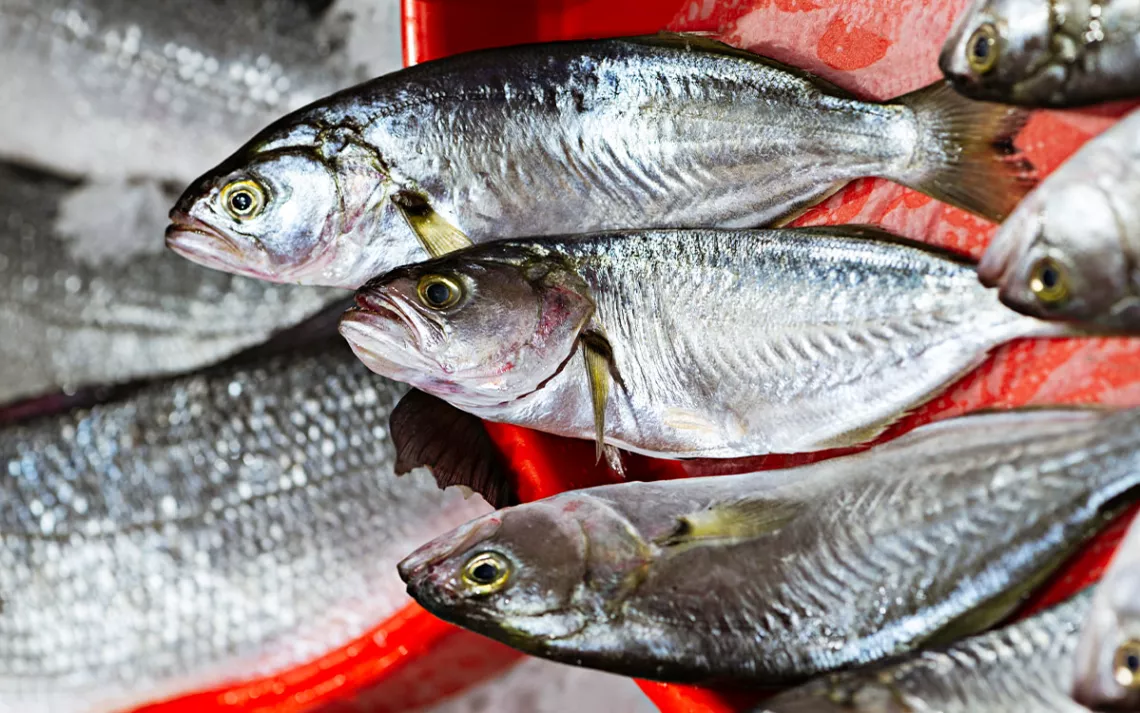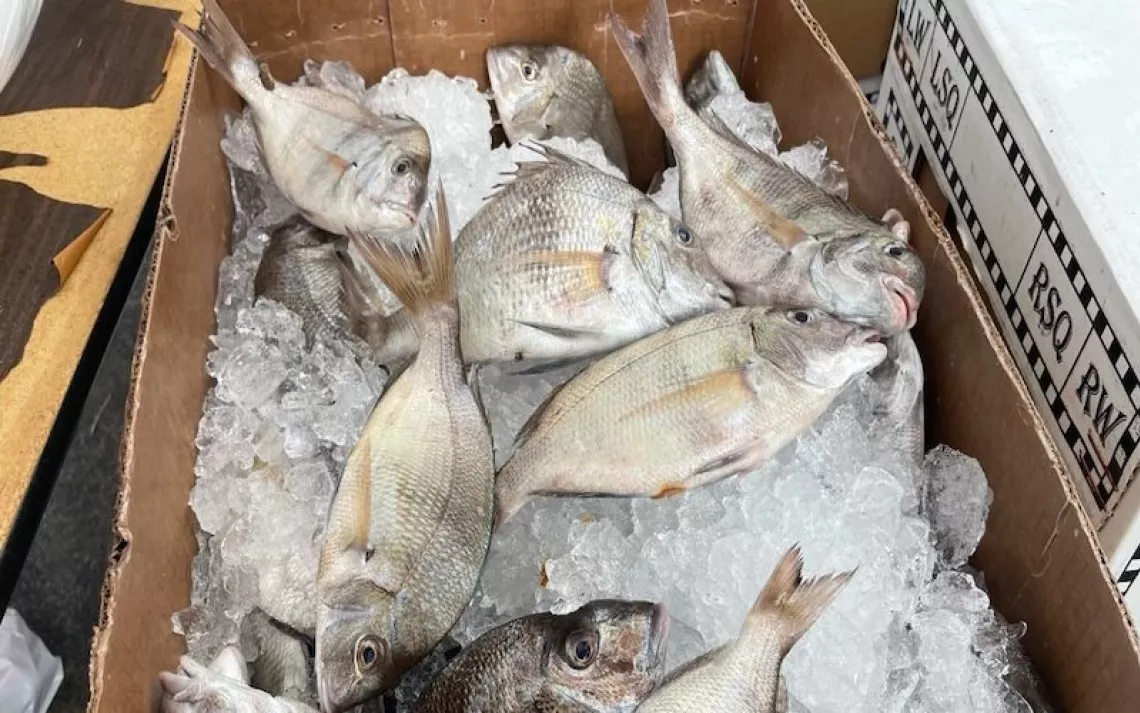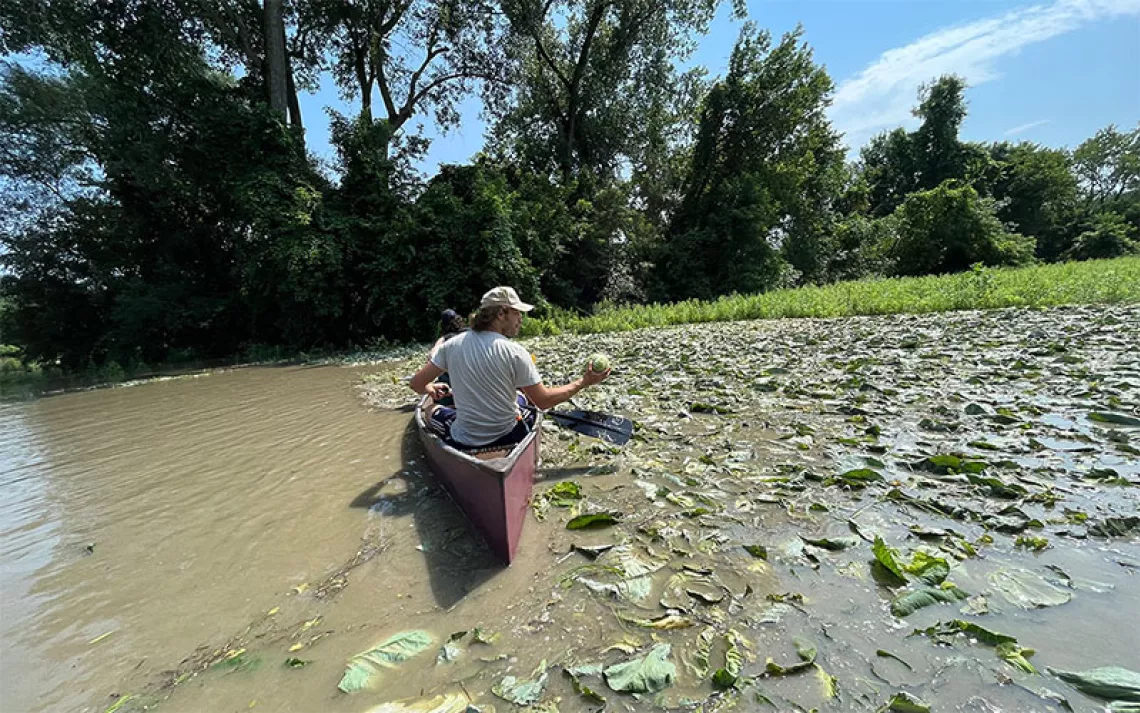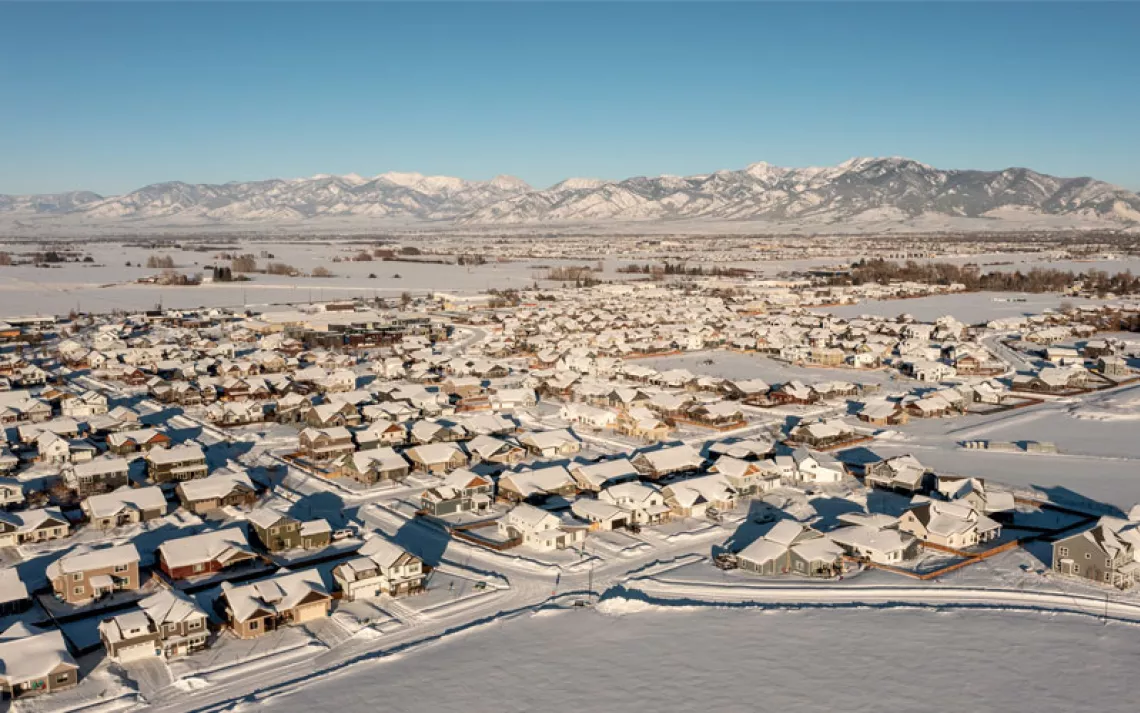How One Seafood Donation Initiative Is Tackling Food Insecurity and Waste
This effort is transforming a Rhode Island community’s relationship to fresh, whole fish

Photo by simarik/iStock
Ungwa Ngyoko grew up on a cassava farm in eastern Congo not far from Lake Kivu, one of East Africa’s Great Lakes. Long before she arrived in Providence, Rhode Island, as a war refugee in 2021, she remembers fisherfolk passing by on bicycles and on foot, peddling their catch from the lake or a nearby river. Her mother would sometimes fry that catch in oil or smother it in a stew or grill it whole—which was Ngyoko’s favorite—and serve it with yams and ugali, a porridge made from maize flour.
The 47-year-old came to New England with her husband and her six kids. Displaced by the First and Second Congo Wars, Ngyoko had spent the previous two decades in Nyarugusu refugee camp, one of the largest in Tanzania. She is barely five feet tall with cherry cheeks that buoy her heavy, down-turned eyes. Through a Swahili translator, she recalls that food in her camp was pretty basic: fufu (pounded cassava, a staple) plus beans, yellow peas, and cassava leaves. Fish was scarce, and usually dried or tinned.
Since she arrived in Rhode Island, Ngyoko has received a regular ration of fresh, whole fish through Women’s Refugee Care, a nonprofit center that primarily helps resettle families from the Congo, Burundi, and Rwanda in the Providence area. The nonprofit gets seafood from the Commercial Fisheries Center of Rhode Island, which works with local fishers to distribute their catch to community partners for free on a weekly or monthly basis through a grant-funded donation initiative.
In the nearly three years since it was established, the seafood donation program has helped keep the local fishing industry afloat while also tackling food insecurity. It has simultaneously become a framework for possible solutions to even more community challenges—food waste and overfishing among them.
Kate Masury, the founder and director of the Rhode Island nonprofit Eating With the Ecosystem and a strategic partner of the seafood donation initiative, has devoted her entire career to getting New Englanders to change the way they consume fish. Right now, she says, most people in the region only eat five local species on a regular basis: cod, haddock, lobsters, clams, and scallops. They mostly buy the fish pre-fileted, sometimes frozen, overlooking the 100+ other edible species—many of which are more abundant and reproduce faster—that are swimming nearby off the north Atlantic coast.
New Englanders, Masury says, can learn a lot about embracing a more responsible and ocean-friendly diet from immigrants and refugees like Ngyoko who build new lives in the region: To date, the Commercial Fisheries Center has donated over 330,000 pounds of fish that fall almost entirely into that latter category of the 100 other edible local species, like scup, bluefish, jonah crab, and whiting. That catch is distributed fresh and whole, packed on ice, cutting down on processing expenses and food waste while providing food-insecure communities with nutritious and culturally appropriate proteins.
Aline Binyungu, founder of Women’s Refugee Care, says many of the families reliant on the donations see fish as a luxury. They almost always prefer to cook with an entire fish, but buying from a Rhode Island grocery store is too expensive. Frozen fish and filets, often not much cheaper, lose some of their flavor and nutritional value when processed. Binyungu, a refugee herself, says these culturally appropriate foods provide so much more than just calories—they have spiritually transformed her community.

A box of medium scup donated to Women’s Refugee Care. Photo courtesy of Women’s Refugee Care.
Fred Mattera, who runs the Commercial Fisheries Center, says the beauty of the seafood donation program is that community partners accept the fish whole. “If I went to the average American here, I'd have to filet it and take the odor out of it; I'd practically have to cook it for them,” he says. “These people are so gracious to have a whole fish because it's part of their culture. They know how to prepare it, and they embrace it.”
Dave Love, a North Carolina–based researcher at Johns Hopkins University studying the dynamics of seafood waste, is quick to point out that one grant-funded donation program on the community scale won’t solve the global crises of industrial fishing and food waste on its own. To that end, Love and his team have spent the last four years trying to quantify exactly how much seafood Americans waste and why.
Because seafood spoils more quickly than other proteins, Love says, it poses a particular challenge for curbing food waste. American consumers get especially squeamish about a “fishy smell” and may be more prone to questions about the safety of their seafood, leading to more at-home waste, he says. “We do need to get better connected to the food that we're eating, to better know our farmers, better know our fisherfolk,” Love explains. “Shortening the supply chains is one way to do that.” But that gets harder the farther a person lives from the coast, he adds, and programs like the Rhode Island donation initiative often struggle to maintain funding over long periods of time. To meaningfully slash waste in our food systems, it would take a critical mass of innovative local community programs like this one, with the institutional investment needed to back them up.
Still, the impact of the fresh-catch donation program on this community is deep and multifaceted.
Captain Chris Brown, a long-time partner with the center who’s been fishing Rhode Island’s waters for five decades, has dealt the program a portion of his catch since its inception in 2020.
Ethnic diversity, Brown says, is a gift to the fishing industry, because “Americans are fish snobs.” Not only does whole fish taste better, in his opinion, but it’s also better for fishers, who can retain more of the profits when production costs are at a minimum. “Diverse communities who can keep the catch local instead of [us] having to pay shipping costs will save the industry,” he says. “We’re serving their needs, and they’re serving ours.”
For Ngyoko, who has survived routine dehumanization through decades of violence and hunger in camps, a grilled or pan-fried scup is a small reclamation of the comfort that’s been stolen. Says Bingyungu, “We need our culture. We are very far from our home.” And the fish? It’s “a reminder of who you are and where you are from.”
 The Magazine of The Sierra Club
The Magazine of The Sierra Club






